Dr. Mardy's Quotes of the Week ("Four Tips on Aging Effectively'')
Jan. 26 - Feb. 1, 2025 | THIS WEEK'S THEME: “Four Tips on Aging Effectively"
Great Opening Line of the Week
I’ve always admired older women—especially those who are commonly described as demure—who retain the ability to say or do something outrageous, or even shocking. To me, it’s a key indicator of effective aging.
For well over 2,000 memorable opening lines from every genre of world literature, go to www.GreatOpeningLines.com.
This Week’s Puzzler
On January 24, 1862, this woman was born into a wealthy Manhattan family whose lucrative banking and real estate interests propelled them to the top ranks of New York City society. The family’s surname was Jones, and it is commonly believed that the saying about “keeping up with the Joneses” originally referred to them.
Raised in an atmosphere of privilege, she accompanied her parents on so many trips to Europe during and just after the Civil War that she became fluent in French, Italian, and German. For almost all of her childhood, she lived most of the year in Manhattan and summered in Newport, Rhode Island.
During adolescence, she began to entertain thoughts about a literary career, secretly penning a novella at age fifteen, and a year later getting a poem published in the Atlantic Monthly. She was also shy and reclusive, turning her back on the high-flying social scene of her parents and spending most of her time poring over books in a spacious and well-stocked library in the family’s mansion on Park Avenue.
In 1885, at age 23, she married a man from a prominent Boston family. It was not exactly a match made in heaven, though. He suffered from chronic depression, had numerous affairs, and was completely unsupportive of her writing efforts. The marriage—which lasted 28 years before a divorce in 1913—didn’t result in any children, but it did produce one of America’s great estates: a country home she designed and the couple had built for them in the Berkshire Mountains near Lenox, Massachusetts. “The Mount,” as the estate is known, is now a U. S. National Historic Landmark.
Encouraged by her friend Henry James to write about what she knew best, she wrote novels and short stories that provided an insider’s view of upper-class American society at the beginning of the 20th century. She also blended a concern for literary form and ethical issues in such works as The House of Mirth (1905), Ethan Frome (1911), and The Age of Innocence (1920), for which she won a Pulitzer Prize (the first woman so honored). She died of a stroke at age 75 on August 11, 1937. In her 1934 autobiography A Backward Glance, she wrote:
Who is this person? (Answer below)
Four “Tips” On Aging Effectively
I’ve long loved the quotation in this week’s Puzzler. To me, it’s a reminder that, despite the inevitable problems that accompany aging, we don’t have to approach our advancing years in despair if we pay attention to a few time-honored principles.
When the Puzzler observation came up in a conversation several weeks ago, I suddenly saw it in a new way—not simply as a memorable quotation about aging, but rather as the attempt of an experienced elder person to offer a few “tips” about how to age more effectively.
The word tip, when used to refer to helpful advice, evolved from the 17th-century English verb “tip,” meaning “to give” or “to hand over,” as in the practice of giving gratuities to service workers. While that original meaning continues to be used today, in modern advice-related usage, a “tip” refers to a brief, actionable suggestion designed to simplify tasks or improve outcomes. The appeal of tips is easy to understand. When done well, they are easy to understand—and to apply—and have all the qualities of wisdom distilled into manageable form.
This week, let’s take the items in this week’s Puzzler quotation and present them as “Four Tips for Effective Aging.” Carrying things just a bit further, let’s also pair each tip with a few quotations that exemplify the essence of the advice being given.
(1) Don’t Fear Change, Face It!
As we age, we never know what’s going to happen, but time has proven again and again that those who are best able to confront life’s inevitable changes are also the most vibrant, resilient, and successful. The secret is not to fear change, but to face it directly—and then to adapt, and possibly even thrive, in its midst.
(2) Develop an Insatiable Curiosity.
While it may be true that most things are better in moderation, that old maxim does not apply to curiosity. The more curious people are, the more effectively they age.
A curiosity incapable of being quenched is also incapable of being satisfied—and an insatiable curiosity becomes not only the best way to stay fully engaged, it has the added benefit of opening new doors and forging new pathways as we journey through life.
(3) Find Meaning in the Big Things.
While it’s essential to attend to the countless details of life, don’t get lost in the weeds. Also make sure that your attention and energy is focused on larger, more meaningful pursuits—like thinking about the purpose of your life, advocating for principles or causes you believe in, engaging in the pursuit of aspirational goals, and endeavoring to make the world a better place.
(4) Find Joy in the Small Things.
While the pursuit of grand endeavors generally gets the headlines, it is the ability to find both joy and meaning in the smaller, less glamorous things that is actually more important in achieving a fulfilling life. Never forget that relatively simple things—like viewing a beautiful sunset, listening to a symphony, attending a dance recital, having a heartfelt conversation, taking a walk in the woods, or engaging in a random act of kindness—can provide enormous sustenance, especially during challenging times.
This week, take a few moments to reflect on how effectively—or not—you’re aging. Think about it on your own, of course, but also consider getting some input from a spouse, other family member, or dear friend. As I've suggested many times, our intimates often see us more accurately than we do ourselves. Also let your thinking be stimulated by this week’s selection of quotations on this important theme in human life:
You can only perceive real beauty in a person as they get older. — Anouk Aimée
To keep the heart unwrinkled, to be hopeful, kindly, cheerful, reverent—that is to triumph over old age. — Thomas Bailey Aldrich
To know how to grow old is the masterwork of wisdom, and one of the most difficult chapters in the great art of living. — Henri-Frederic Amiel
It’s sad to grow old—but nice to ripen. — Brigitte Bardot
Say “no” to the fountain of youth and turn on the fountain of age. — Betty Friedan
From the middle of life onward, only he remains vitally alive who is ready to die with life. — Carl Jung
Youth is the gift of nature, but age is a work of art. — Garson Kanin
Years are only garments, and you either wear them with style all your life, or else you go dowdy to the grave. — Dorothy Parker
The more sand has escaped from the hourglass of our life, the clearer we should see through it. — Jean Paul Richter
It is a mistake to regard age as a downhill grade toward dissolution. The reverse is true. As one grows older one climbs with surprising strides. — George Sand
For source information on these quotations, and more observations on the theme of AGE & AGING, go here. For quotations specifically on the topic of OLD AGE, go here
Cartoon of the Week:
Answer to This Week’s Puzzler:
Edith Wharton (1862–1937).
For more on The Mount, go here.
Dr. Mardy’s Observation of the Week:
Thanks for joining me this week. See you next Sunday, when the theme will be “Six More Tips on Effective Aging.”
Mardy Grothe
Websites: www.drmardy.com and www.GreatOpeningLines.com
Regarding My Lifelong Love of Quotations: A Personal Note



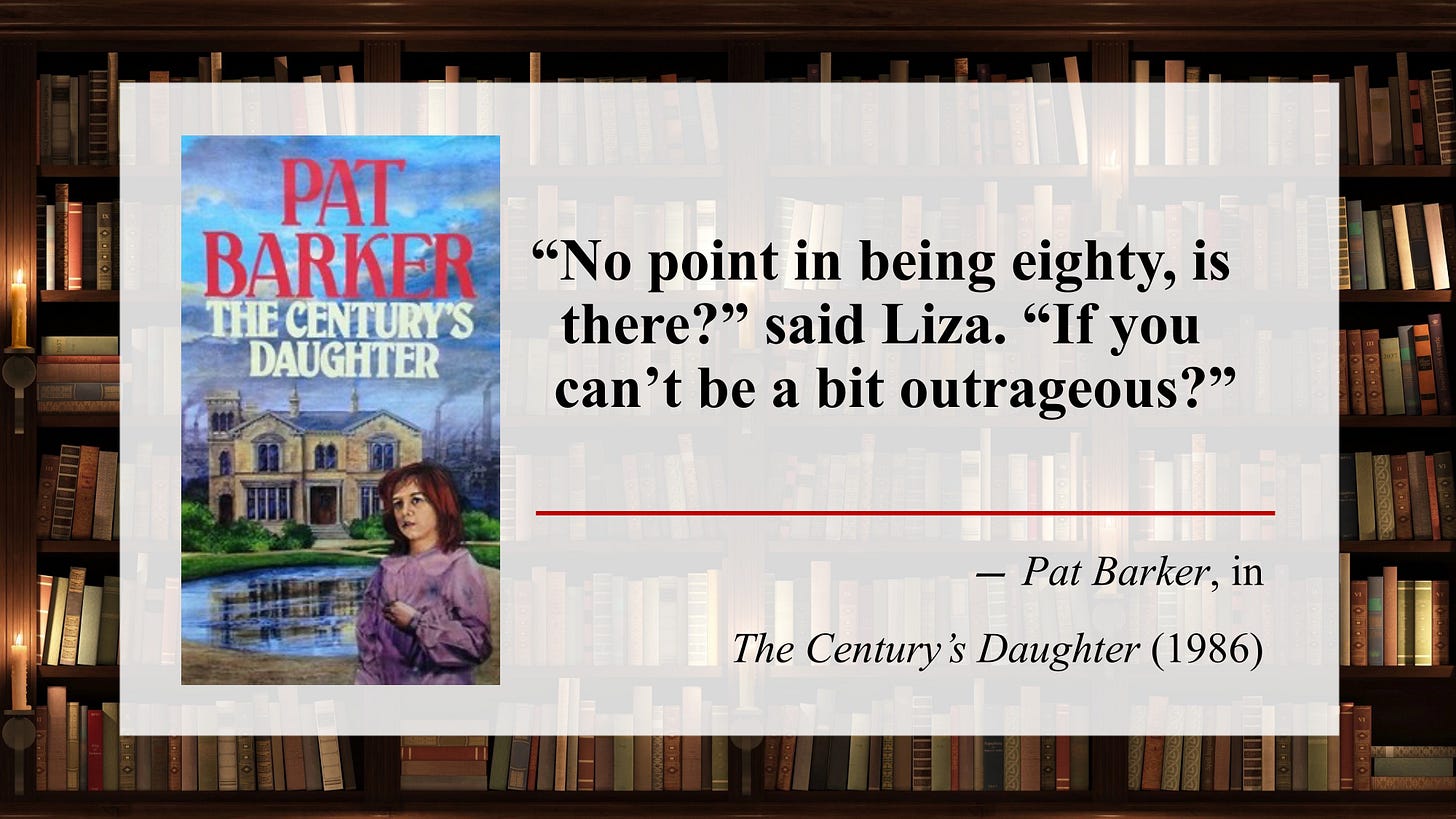

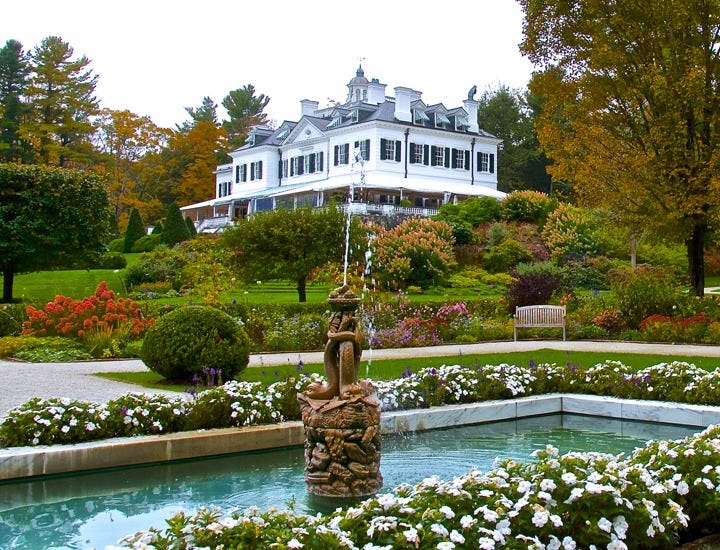


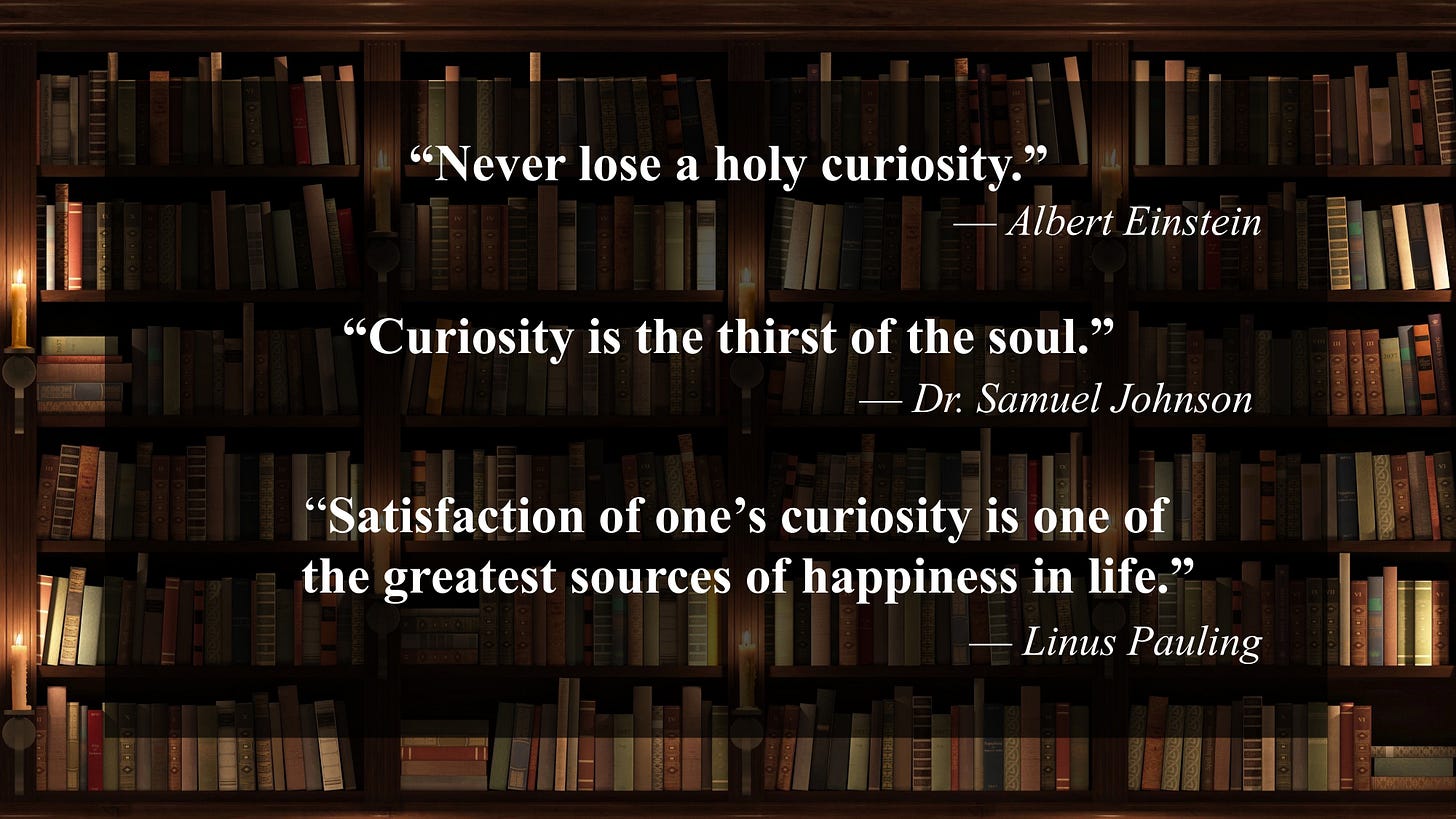
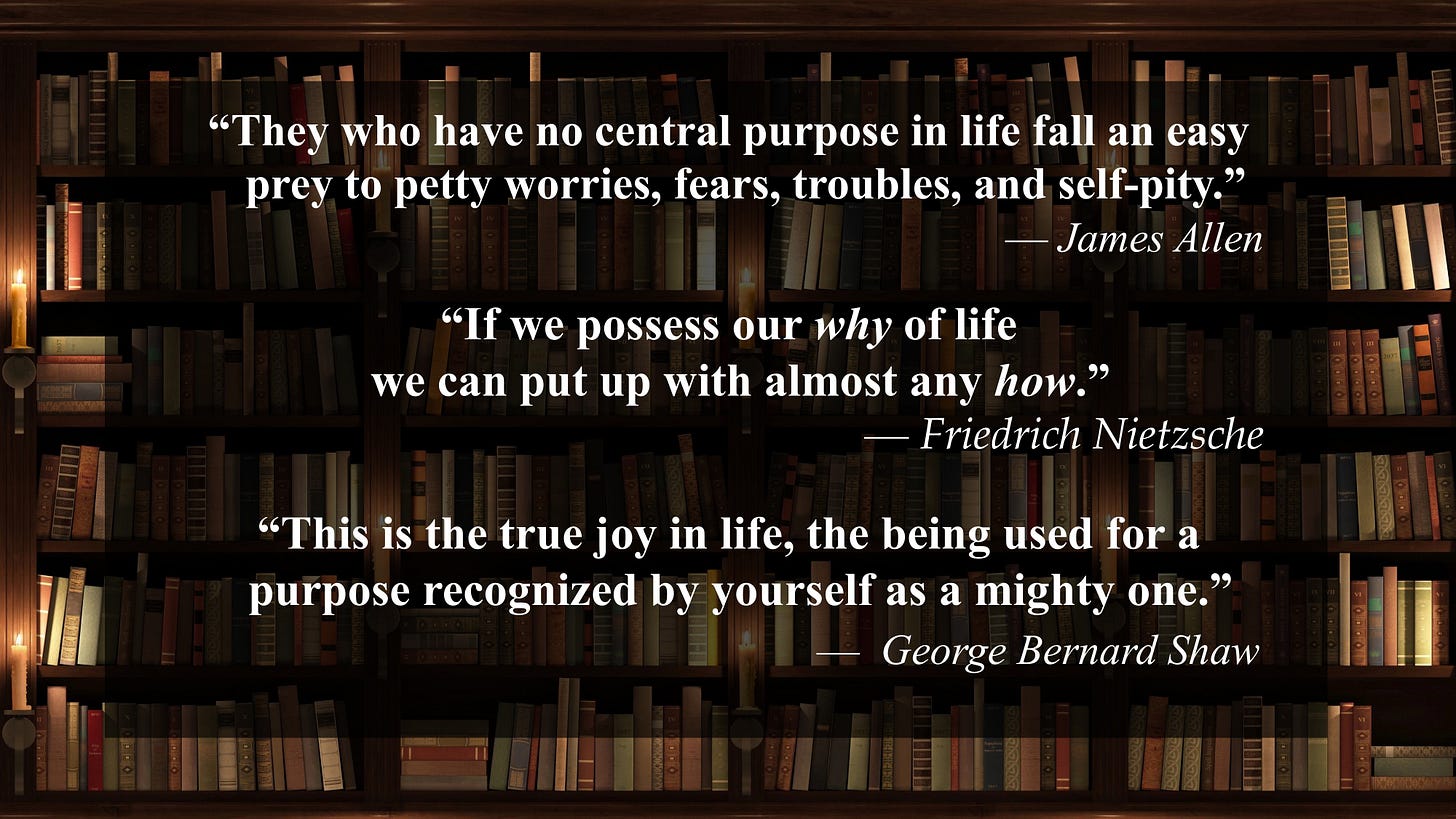

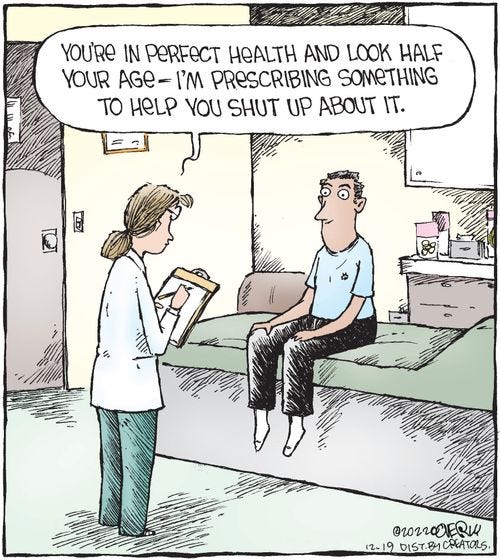


This week's newsletter struck a chord with me. My father died 3 years ago and he lived a good life until the last few years he turned frail in body and spirit as his health failed and my mother was swallowed in dementia. It was sad but not sad. And I'm starting to feel the effects of age now too, so your 4 tips give me goals to shoot for.
Last week you quoted Rollo May who said depression is the inability to construct a future. As many of my dreams have dimmed or died due to age I find it harder to construct a future. Your newsletter this week provides some inspiration to get building.
Oops. Such an important reminder of how I want to age! Thank you!!!